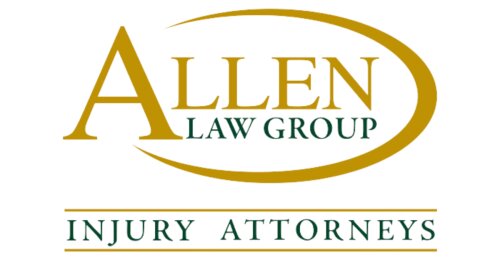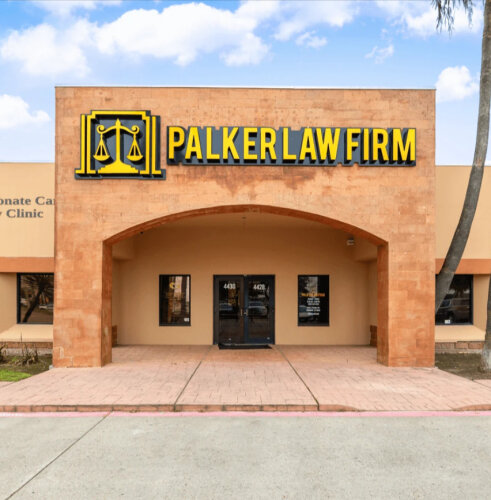Best Marine Insurance Lawyers in Illinois
Share your needs with us, get contacted by law firms.
Free. Takes 2 min.
Or refine your search by selecting a city:
List of the best lawyers in Illinois, United States
About Marine Insurance Law in Illinois, United States
Marine insurance is a specialized area of insurance law that covers the loss or damage of ships, cargo, terminals, and any transport by which property is transferred, acquired, or held between points of origin and final destination. In Illinois, marine insurance encompasses both ocean marine (international and coastal shipping) and inland marine (transport over land, whether by rail, truck, or other means, including warehouse and storage exposures). Illinois adheres to both federal maritime law and state-specific statutes that may impact insurance coverage for marine activities within state waters, on inland rivers, and for businesses that engage in shipping or transport. Understanding the specific terms, exclusions, and local legal requirements of marine insurance policies is crucial, as these factors determine claims, liabilities, and disputes.
Why You May Need a Lawyer
Many individuals and businesses encounter complexities when dealing with marine insurance matters. Here are some common situations where legal assistance may be beneficial:
- If your marine insurance claim for lost or damaged cargo, vessels, or equipment has been denied or undervalued by an insurer.
- When reviewing, negotiating, or renewing marine insurance contracts and wanting to ensure comprehensive coverage and proper understanding of policy terms.
- If you are unsure about your liabilities or obligations under a marine insurance policy following an accident or loss.
- In cases of subrogation, when an insurer seeks recovery from third parties after paying a claim.
- If you are involved in a dispute with another party (such as logistics companies or vendors) related to shipment responsibilities or insurance coverage.
- When compliance with state and federal maritime or insurance regulations is contingent to business operations.
- If you operate a marine business and need risk management guidance or legal compliance advice.
Local Laws Overview
Marine insurance in Illinois operates at the intersection of federal maritime law and state-level insurance regulation. The Illinois Department of Insurance oversees the authorization and conduct of insurance companies, including those offering marine coverage. While federal law often governs ocean marine policies, inland marine and related coverages often fall under Illinois statutes, particularly the Illinois Insurance Code (215 ILCS 5). This code mandates procedures for policy issuance, claims handling, and acts prohibiting unfair insurance practices. Additionally, Illinois contract law, rules on insurable interest, subrogation, and provisions regarding indemnity and salvage may apply. Jurisdiction over disputes can vary, involving state courts or, in certain admiralty matters, federal courts. Properly understanding these dual frameworks is essential for anyone engaged in transport, shipping, or marine business activities in Illinois.
Frequently Asked Questions
What is marine insurance and who needs it?
Marine insurance provides coverage for the loss or damage of ships, boats, cargo, and other property during transportation, typically for businesses involved in shipping, importing, exporting, or logistics operations.
Does marine insurance cover all types of cargo and transport in Illinois?
Coverage depends on the specific policy. Some marine insurance policies cover ocean and inland transit, while others focus on particular risks (like hull, cargo, liability). It is crucial to review your policy terms and exclusions.
How do I file a marine insurance claim in Illinois?
Notify your insurer as soon as possible after a loss. You will typically need to document the damage, provide bills of lading, shipping documents, and cooperate fully with the investigation. Consult your policy for any special claims procedures.
Can an insurer deny my claim and what are my options?
Yes, insurers may deny claims for various reasons, such as late reporting, excluded perils, or inadequate documentation. If denied, you have the right to appeal or pursue legal action, and should consider consulting a marine insurance attorney.
What laws generally govern marine insurance disputes in Illinois?
Disputes may be governed by federal maritime law, the Illinois Insurance Code, and general state contract law, depending on the policy's nature and the circumstances of the dispute.
Are there any special regulations for marine insurance providers in Illinois?
Yes. The Illinois Department of Insurance regulates provider licensing, policy forms, solvency standards, and fair claims practices. Providers must comply with both state and federal requirements.
Can I use a standard insurance lawyer for marine policy issues?
While any licensed attorney may assist with insurance, marine insurance law is highly specialized. Attorneys familiar with maritime and insurance law are usually better equipped to address unique aspects of marine policies and related claims.
What risks are typically excluded from marine insurance policies?
Common exclusions include losses due to improper packaging, inherent vice of goods, wear and tear, intentional misconduct, war, strikes, and unseaworthiness. It is important to read each policy for specific exclusions.
How do I determine the right amount of marine insurance coverage for my business?
Assess the value of your goods, vessels, shipping routes, and risk exposure. An experienced broker or legal advisor can help tailor coverage to your needs and ensure compliance with contracts or statutory requirements.
When should I contact a lawyer about marine insurance?
Contact a lawyer if your claim is denied, if you face large losses, if policy language or obligations are unclear, or if you are entering into substantial shipping or transport arrangements requiring comprehensive risk management.
Additional Resources
If you need more information or assistance, consider reaching out to the following organizations and resources:
- Illinois Department of Insurance - Regulates insurance companies and resolves complaints.
- United States Coast Guard - Maritime safety, regulations, and incident reporting for commercial vessels.
- National Association of Insurance Commissioners (NAIC) - Consumer information and guidance about insurance policies and rights.
- Chicago Bar Association - Offers lawyer referral services and legal education resources relevant to maritime and insurance law.
- Maritime Law Association of the United States - Professional association with resources on maritime legal issues.
Next Steps
If you need legal assistance with marine insurance matters in Illinois, take the following steps:
- Gather and organize all relevant policy documents, correspondence, and any loss or accident reports.
- Make a list of your key questions or concerns regarding your insurance policy or claim.
- Reach out to a lawyer with experience in marine insurance or maritime law for a consultation.
- If needed, contact the Illinois Department of Insurance for further guidance or to file a complaint.
- Consider speaking with a broker or marine insurance specialist for a second opinion on coverage or claims practices.
Taking timely action and getting professional guidance are critical to protecting your interests in marine insurance matters.
Lawzana helps you find the best lawyers and law firms in Illinois through a curated and pre-screened list of qualified legal professionals. Our platform offers rankings and detailed profiles of attorneys and law firms, allowing you to compare based on practice areas, including Marine Insurance, experience, and client feedback.
Each profile includes a description of the firm's areas of practice, client reviews, team members and partners, year of establishment, spoken languages, office locations, contact information, social media presence, and any published articles or resources. Most firms on our platform speak English and are experienced in both local and international legal matters.
Get a quote from top-rated law firms in Illinois, United States — quickly, securely, and without unnecessary hassle.
Disclaimer:
The information provided on this page is for general informational purposes only and does not constitute legal advice. While we strive to ensure the accuracy and relevance of the content, legal information may change over time, and interpretations of the law can vary. You should always consult with a qualified legal professional for advice specific to your situation.
We disclaim all liability for actions taken or not taken based on the content of this page. If you believe any information is incorrect or outdated, please contact us, and we will review and update it where appropriate.
Browse marine insurance law firms by city in Illinois
Refine your search by selecting a city.













